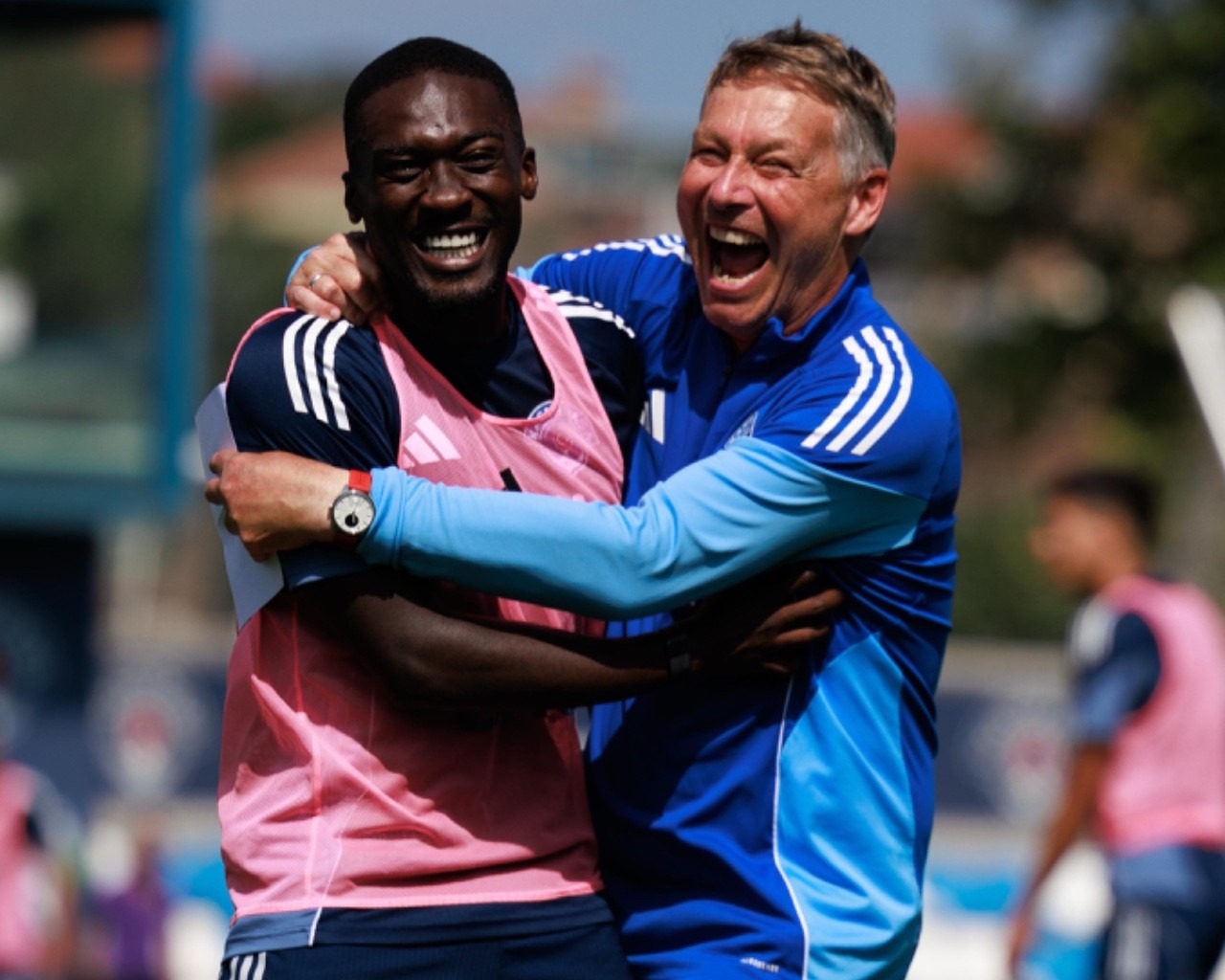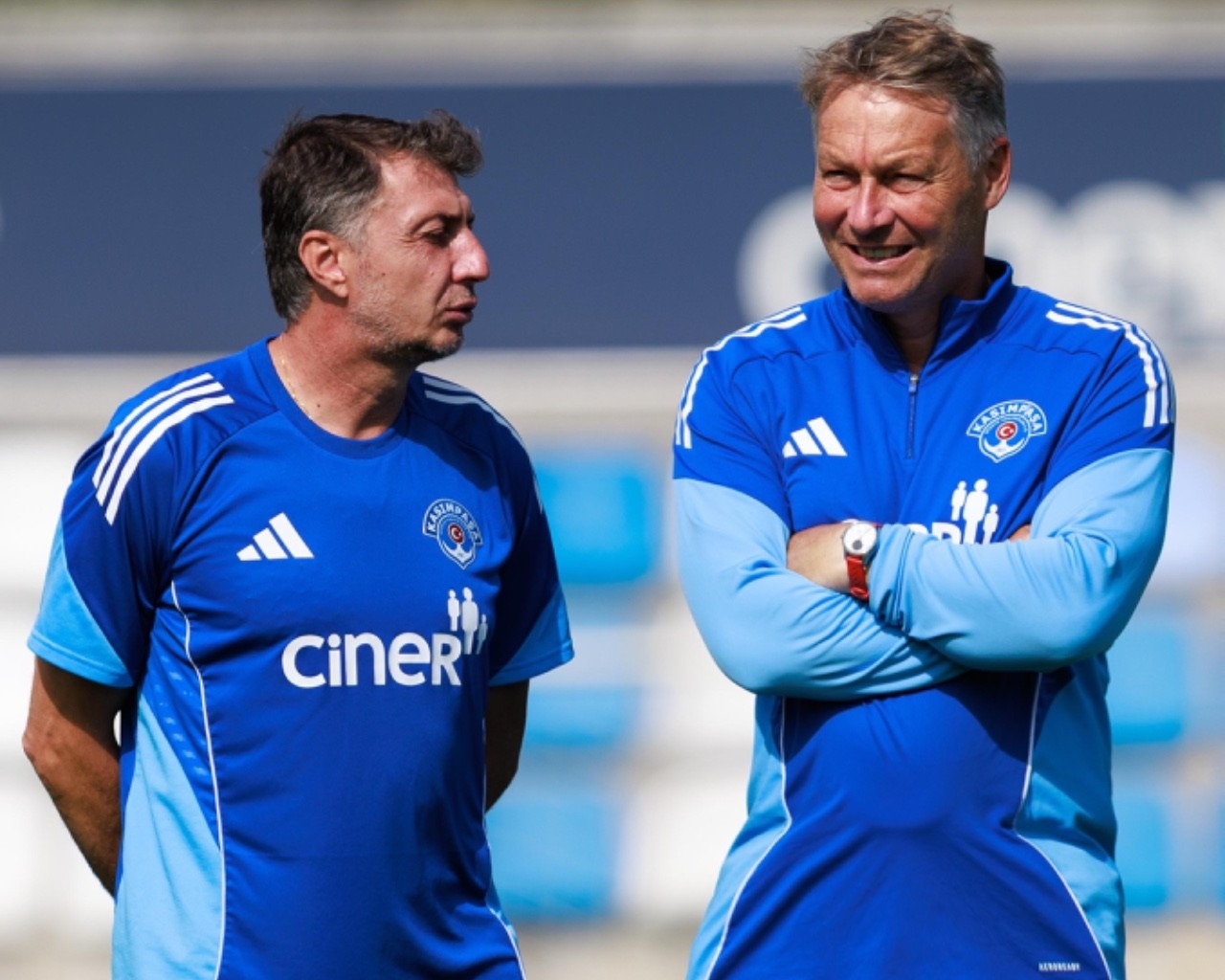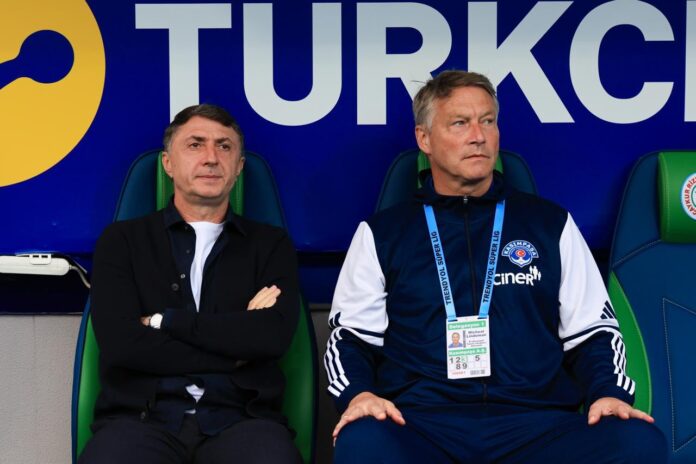In modern football the role of an assistant manager often remains unseen, yet it can define the heartbeat of a team. At Kasımpaşa SK, Michael Lindeman works closely with head coach Shota Arveladze to build not just a competitive squad but a culture of trust, identity and resilience in one of Europe’s most unpredictable leagues.
A new chapter in Istanbul
“Football is about relationships and timing,” Lindeman begins. “I was introduced to Shota through a top agent, and from the first conversation there was an immediate sense of alignment in values, in work ethic and in ambition.”
For Lindeman, joining Kasımpaşa was not just about returning to the Süper Lig. It was about helping shape something meaningful. “What attracted me here was the chance to build a team with identity, resilience and courage. The margin for detail can make the difference, and that’s exactly what this project is about.”
Building a new identity
Kasımpaşa faced one of the biggest rebuilds in recent years, with a completely new squad entering the season. For Lindeman, such transitions are not only about signing players but defining culture.
“When you rebuild a squad, you are shaping a culture based on key points and values,” he explains. “The biggest challenge is creating instant chemistry in an environment that usually takes months or years. We started with clarity: clear tactical roles, clear behavioural standards, clear communication. Once players feel that clarity, trust follows and identity emerges.”
He smiles and adds, “Identity is not a slogan on the wall. It’s what players do under pressure in the 90th minute. Culture is what exists when the boss isn’t around.”
Making ambition count
Operating with a smaller budget than many Süper Lig clubs, Kasımpaşa’s ambitions rely on creativity rather than resources. “Constraints can be powerful; they force creativity,” Lindeman says. “We look not only at talent but at fit: mentality, adaptability and hunger. I always say a player must have a FACE. If I mention his name, you should be able to list one or two traits immediately – speed, composure, leadership, aggression. Planning means maximising every detail: training efficiency, recovery and role definition. Success is not about the size of the budget but the size of the vision.”
The connector behind the coach
As an assistant, Lindeman sees himself as the link between the head coach’s vision and the players’ execution. “An assistant is a connector,” he explains. “I translate the head coach’s vision into daily reality on the pitch, in analysis and in player interactions. My role is part tactical, part organisational and part human. I spot details before they become problems and create space where players can express themselves fully while respecting the team framework. I see myself as both an architect and a bridge.”
Trust as the invisible contract
Trust, Lindeman believes, is what holds everything together. “Trust is the invisible contract that makes everything possible,” he says. “Between Shota and me, it means alignment without needing constant explanation. With players, it means they know I have their back even when I demand the highest standards. With the club, it means consistency – that what we say is what we do. Without trust, tactics collapse. With trust, even the impossible becomes achievable.”
“Trust is the invisible contract that makes everything possible”
He reflects for a moment. “Trust connects to dignity and responsibility, which go beyond the pitch. When trust is broken, between player and coach or between sport and society, the entire system suffers.”
Turning ideas into habits
Lindeman’s coaching philosophy blends structure with psychology. “Principles only live if they are trained every day,” he says. “A principle like pressing high is not just theory; it’s repetition, correction and reinforcement until it becomes instinct. Training is where the blueprint turns into behaviour, and that transformation is my responsibility.”
He often uses a framework to guide his players’ learning. “Some players are unaware and incompetent , they don’t even know what they are doing wrong. Then we make them aware and incompetent , we explain what has to be improved. Next comes awareness with competence , they remember to apply it. Finally they reach the stage of unconscious competence, where it becomes instinctive. That’s the goal.”
Science meets management
Lindeman’s scientific background still shapes how he sees the game. “It gave me a double lens,” he says. “I see football both through the tactical eye and through the body’s capacity. I understand how to push without breaking, how to optimise recovery and how to individualise within a collective. I’ve worked with player DNA testing and I keep that mindset of measuring, evaluating and adjusting. But science alone is never enough; it’s when science becomes human that performance truly evolves.”
Leadership without the spotlight
For Lindeman, leadership as an assistant means presence without ego. “I want players to see me as approachable for support but also as someone who enforces standards,” he says. “It’s a balance between empathy and firmness. Players respect consistency when they know what to expect from you. But you must stay authentic. Players know within five minutes if you’re acting or being real.”
He adds that leadership also means protection. “Players need to feel respected and safe, regardless of background or gender. As assistants we have a duty to uphold that environment.”

The human side of football
Beyond tactics, Lindeman insists on keeping the human side alive. “Footballers are not machines; they have families, pressure, emotions,” he says. “Sometimes the best coaching is just a conversation. Mental readiness is about creating an environment where players feel safe to give everything, knowing that mistakes are part of growth. Fun is a huge factor we implement daily.”
He continues, “Players are humans before athletes. Supporting them means inclusion, well-being and respect. Human rights in sport start with daily human care.”

Looking forward
As for the future, Lindeman’s ambitions remain both grounded and expansive. “My goal is always to add value where I am,” he says. “Right now that means helping Kasımpaşa succeed and helping Shota realise his vision. Of course I see myself leading a team one day, but it’s difficult to enter the UEFA Pro Licence pathway as it often favours younger coaches over experience.”
He looks beyond the touchline. “I’ve worked across Egypt, Germany, Libya, Switzerland, England, the Netherlands, Turkey and the Emirates. I’ve seen how football can unite people. Long term I want to help create environments where both performance and human dignity thrive, for boys and girls, men and women alike.”

